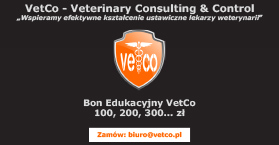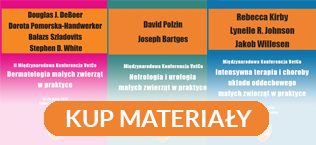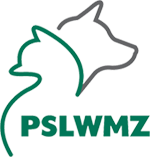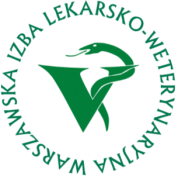We are very proud of the warmth and quality of care that our hyperthyroid cat patients receive while they board with us after their radioiodine treatment. This fun video will give you a better idea of what it actually feels like to be a cat boarding in our state-of-the-art facility. The Hypurrcat Spa at The Animal Endocrine clinic is a warm, welcoming and comfortable facility, staffed by the world's leading veterinary endocrinologist, Dr. Mark E. Peterson.
For more information, please visit our website or call us at (212) 362-2650.
Źródło: animalendocrine.blogspot.com
Thyroid hormone is produced by the thyroid glands, small glands located in the neck. Thyroid hormone plays a very important role in regulating metabolism and proper functioning of the body.
Why is so important to diagnose and treat hypothyroidism?
The thyroid is responsible for the proper functioning of the heart, lungs, digestive system, skin, and brain as well as for strengthening hair and bones. It also helps the body convert calories into energy and process carbohydrates and fats.? During growth and development, thyroid hormones play an essential role in normal formation of the neurologic and skeletal systems. Puppies and kittens that develop congenital hypothyroidism show dwarfism or very stunted growth as one of the main clinical signs or symptoms.
In the adult dog or cat, thyroid hormones function affect the function and metabolism of virtually all tissues and organs in the body. Because thyroid hormone is central to many processes in the body, this means that dogs with hypothyroidism can show a wide range of signs. These signs often develop slowly and are not always very obvious to the dog owner. Sometimes the signs are confused with those of normal aging.
 Mental changes:
Mental changes:• Lethargy
• Slow movements or reluctance to go for walks
• Increased time spent sleeping
• Lack of endurance; easily tired
• Increased sensitivity to cold
Weight changes:
• Tendency to gain weight, even on the same diet
• Inability to loss weight, even if less food is fed
Skin changes:
• Tragic facial expression, puffy face or dropping of the upper eyelids
•
• Dry, coarse, thin or sparse coat
• Lack of hair regrowth, e.g. after clipping
• Dry and flaky skin (dandruff), that is not usually itchy
• Loss of hair on tail (eg, rat tail)
• Thickening of skin
• Darkening of the skin (hyperpigmentation)
• Dry and flaky or very oily skin
• Recurrent skin infections
Neurologic abnormalities (rare):
• Seizures
• Vestibular disease
• Peripheral neuropathy
 Which dogs are most likely to be affected with hypothyroidism?
Which dogs are most likely to be affected with hypothyroidism?Virtually all breeds, including mixed breeds, can be affected by hypothyroidism. However, Labrador retrievers, Golden retrievers, Doberman pinschers, Cocker spaniels, and Boxers are among those breeds that are predisposed to develop the disease.
Dogs between 2 and 6 years of age are more commonly affected. Male and female dogs are affected in equal numbers.
How do dogs develop hypothyroidism?
About 50% of the time it is caused by a condition called lymphocytic thyroiditis, an immune-mediated condition where the body starts to create antibodies to the thyroid tissue. Other causes can be due to a cancer of the thyroid gland, a secondary condition involving the pituitary, or for unknown reasons, what we call “idiopathic.”Hypothyroidism in dogs is most commonly caused by destruction of the thyroid gland itself, which leads to the deficiency in thyroid hormone in the blood stream. Two conditions are incriminated in over 95% of cases of primary hypothyroidism in dogs. In lymphocytic thyroiditis, the body produces antibodies against the cells in the thyroid gland that destroy of the thyroid gland. With the second cause of hypothyroidism (idiopathic atrophy), cells of the thyroid gland are replaced by fat cells. The cause is not known but it thought to reflect the end-stage process of lymphocytic thyroiditis in most cases.
Signs of hypothyroidism only develop after about 75% of the thyroid gland is destroyed. This process of destruction is gradual but slowly progressive, taking from 1 to 3 years in most dogs before a diagnosis is made.
Źródło: animalendocrine.blogspot.com
As you can see in the above video, before treatment she was getting ready to go into a hyperthyroid crisis (sometimes called a thyroid storm). She was experiencing severe heart issues, including tachycardia (rapid heart rate) and ventricular arrhythmia (irregular heartbeat), due to her hyperthyroidism. She was anxious, agitated, panting, and underweight.
The second video shows the same cat, after she has been cured of her hyperthyroidism with a radioiodine treatment at the Hypurrcat Spa. This video is taken 3 months after her I-131 treatment. She is now relaxed and she has gained weight back. Recent blood tests reveal that her T4 level has returned to normal, meaning that she is now cured of hyperthyroidism.
For more information about feline hyperthyroidism, please visit the Animal Endocrine Clinic website, the Hypurrcat website and Facebook page, or follow us on Twitter. You may also call us for more information: (212) 362-2650.
Źródło: animalendocrine.blogspot.com
Dr. Mark E. Peterson is a world-renowned specialist in endocrinology (hormonal disorders) of the dog and cat. He specializes in endocrine problems such as diabetes, hyperthyroidism, hypothyroidism, Cushing's and Addison's disease.
Dr. Peterson served as head of endocrinology and nuclear medicine at The Animal Medical Center in New York for over 30 years. He now sees patients at his own private practice, the Animal Endocrine Clinic, with two locations in New York City and Westchester County. The AEC is the world's foremost animal clinic for feline and canine endocrinology and is the only veterinary hospital devoted entirely to animals with endocrine problems. Each location has a Hypurrcat facility dedicated solely to treating hyperthyroid cats with radioiodine. Dr. Peterson created his clinics in an environment that combines scientific knowledge with his compassionate care to effect a cure.
Dr. Mark Peterson is also very active in writing and teaching other veterinarians. He has published hundreds of journal articles, book chapters, and research abstracts and is the editor of a leading textbook on veterinary endocrinology. With more than 250 teaching presentations to his credit, Dr. Peterson is a frequent speaker at veterinary and medical seminars both in the United States and around the world.
Źródło: www.drmarkepeterson.com
Podkategorie
Wrocław
ZSW, w obecnym kształcie, zostało zarejestrowane na naszej uczelni w 2008r. Jego członkowie stanowią jeden z czterech lokalnych oddziałów IVSA w Polsce.Jako lokalni działacze tej międzynarodowej społeczności jesteśmy zobowiązani do szerzenia wyznawanych przez nią idei, aktywnego uczestnictwa w ponadnarodowych przedsięwzięciach, a także do organizacji własnych wydarzeń naukowych.W ramach naszej działalności organizujemy :? międzynarodowe wymiany studenckie grupowe i indywidualne,? fakultatywne wykłady dla studentów, ? całoroczną zbiórkę na schronisko,? imprezy okolicznościowe,? staże i praktyki dla zagranicznych studentów, ? wyjazdy na międzynarodowe kongresy i sympozja.Naszym nadrzędnym celem jest ożywienie współpracy z innymi zagranicznymi uczelniami poprzez organizację jak największej ilości wymian międzynarodowych, które umożliwią zdobycie nowej wiedzy i doświadczeń w zakresie medycyny weterynaryjnej, a także nawiązanie ponadnarodowych przyjaźni obfitujących na całe życie.
W tym roku mamy zamiar poszerzyć naszą działalność o wykłady sponsorowane , a w przyszłości także specjalne konferencje , podczas których studenci wyższych lat oraz młodzi lekarze weterynarii mogliby poszerzyć nabytą już praktyczną wiedzę o cenne wskazówki.
Członkostwo w ZSW nie jest więc przykrym obowiązkiem, ale ciekawą propozycją spędzania wolnego czasu dla wszystkich aktywnych, otwartych, kreatywnych i pełnych zapału studentów medycyny weterynaryjnej. Jest to świetna okazja do zdobycia nowych doświadczeń, poznania nowych ludzi i nawiązania kontaktu z członkami IVSA na całym świecie.
Masz jakieś nowe pomysły, spostrzeżenia, propozycje zmian? Napisz do nas lub przyjdź na spotkanie.
Kardiologia
V Międzynarodowa konferencja VetCo, 21-22 września 2013, Falenty k. Warszawy
Chirurgia małych zwierząt w praktyce
Więcej informacji wkrótce
Po ENDO
fotorelacja
Zadaj pytanie wykładowcy
Zadaj pytanie wykładowcy






















